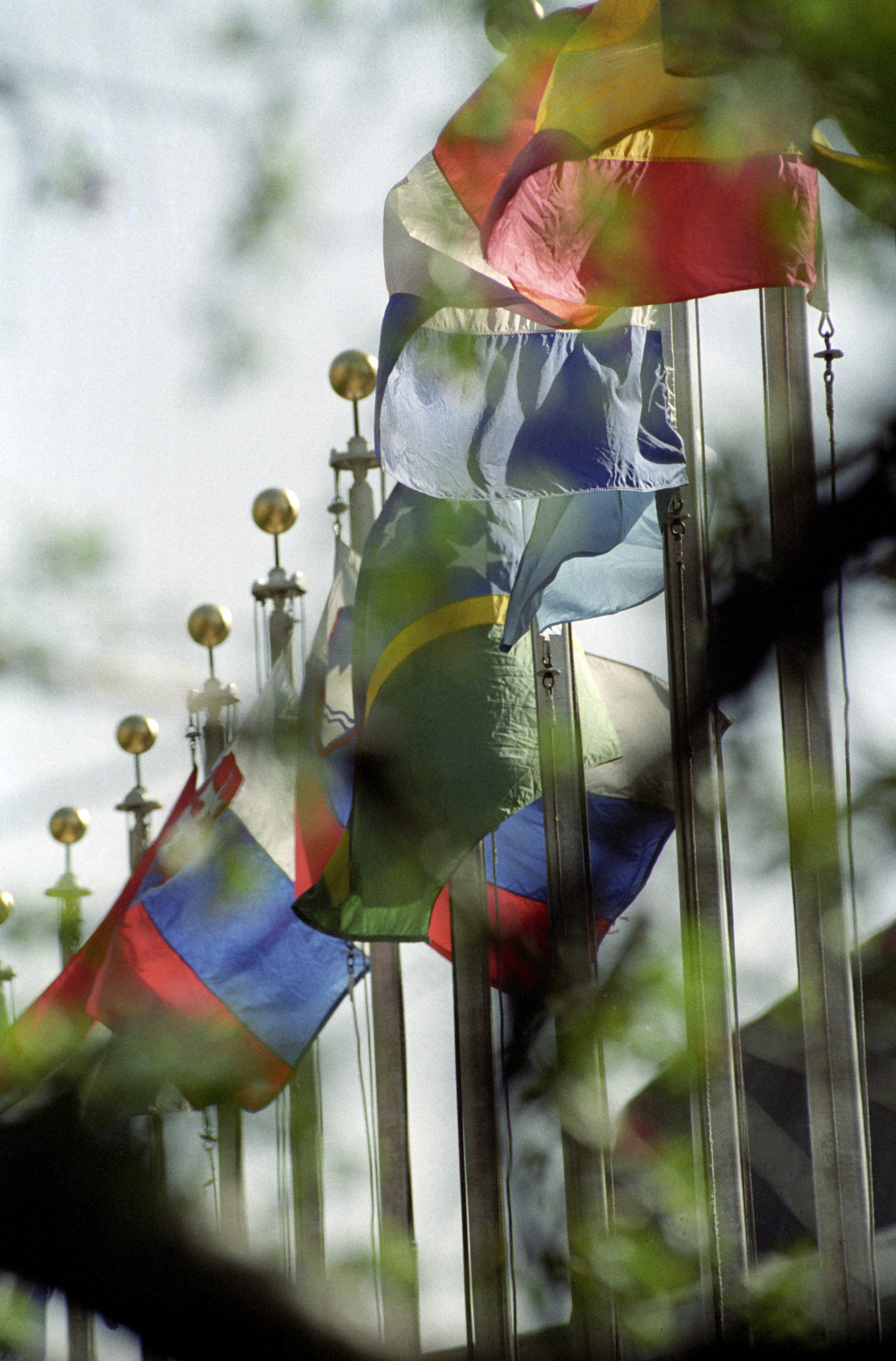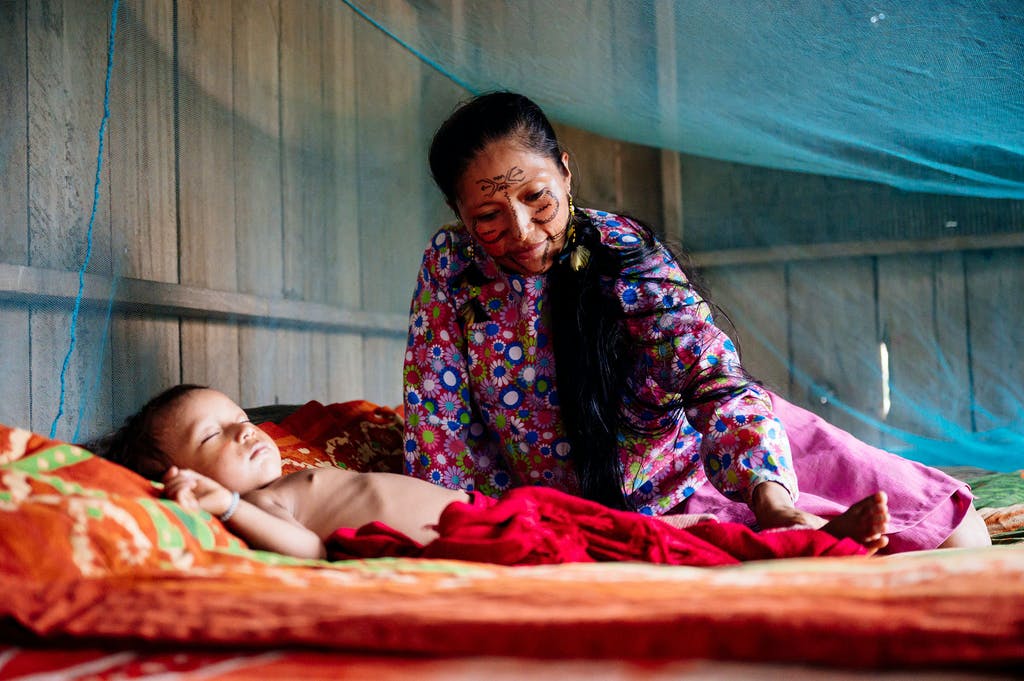
Join us as we explore how technology is powering collective action and accelerating the pace of change for some of Sustainability’s fiercest warriors: from practitioners to innovators, to social impact investors. The event will be introduced by the UN Deputy Secretary-General and will feature Gabriella Hearst, Professor Jeffrey Sachs, and other notable speakers.
Across September 16 – 18, three different events will focus on the themes Farther, Faster, Together respectively.

Project Everyone is organising a week-long edit-a-thon where volunteers from around the world will come together to create new Wikipedia articles for the Global Goals and improve existing pages. The aim of this is to create a buzz around the Goals, mobilise a global community and democratise knowledge.
Recognizing that substantial gaps remain in achieving SDG 3 on health and well-being for all and SDG 5 on gender equality and sexual and reproductive health and rights around the world, this interactive multi-stakeholder dialogue will elevate meaningful commitments to women’s health and empowerment as well as transparency related to gender equality and women’s empowerment by the business community. Getting back on track for the SDGs begins with ensuring the invisible are made visible and not left behind in the call for a true ‘Decade of Action’ on the SDGs.
The event will focus on issues essential to addressing women’s economic inclusion that are relevant to companies and their value chains in the global north and south. The objective is to provide evidence-based assessments on corporate gender impacts and how the business community can best respond, especially amidst the COVID-19 pandemic, which is having a disproportionate impact on women and girls and deepening inequalities.
Speakers:
– Moderator: Seema Jalan, Executive Director, Universal Access Project of the United Nations Foundation
– Shamistha Selvaratnam, Interim Gender Benchmark Lead, World Benchmarking Alliance
– David Wofford, Interim Director, Private Sector Action on Women’s Health and Empowerment, Universal Access Project of the United Nations Foundation
– Lavanya Garg, Good Business Lab
– Perpetua Waithera, NOPE Kenya
– 5 corporate commitment makers on women’s health and empowerment

We need accurate data to help us understand the state of our world, know how much progress we need to make and see the impacts of COVID-19.
For 25 September, the five year anniversary of the Global Goals, Project Everyone is organising the Global Goals Day of Factivism. On this day, we will share ten up to date facts about the state of our world right now and inspire people to take action from supporting campaigns to changing their habits.
UN Member States agreed in June 2019 that the UN will mark its 75th anniversary with a one-day, high-level meeting of the UN General Assembly on Monday, 21 September 2020 on the theme, ‘The Future We Want, the UN We Need: Reaffirming our Collective Commitment to Multilateralism’. They also planned to convene a Youth Plenary related to the 75th anniversary, and to hold observance ceremonies to commemorate the signing of the UN Charter on 26 June 2020 and UN Day on 24 October 2020.
The declaration that will be adopted at the high-level meeting on 21 September was agreed in July 2020.
Due to the COVID-19 pandemic, this event will take place primarily in a virtual format, with pre-recorded statements by heads of state and government.

“Nations United: Urgent Solutions for Urgent Times” sets out what must be done to tackle the world’s biggest issues, from COVID to poverty, inequality, gender discrimination, climate change, justice and human rights. It is the first film of its kind to be broadcast globally and is premiering on the United Nations YouTube channel.
This film is produced by 72 Films and writer, director and UN Sustainable Development Goals Advocate Richard Curtis. The broadcast of this film will also mark the UN’s 75th anniversary, as well as the 5th anniversary of the Sustainable Development Goals.
In partnership with Goal 17 Partners, the Guggenheim Sustainability Quotient will explore key insights from their research while presenting a path forward to deploy trillions of dollars in assets held by institutional investors to fund sustainable infrastructure projects around the world.
The Guggenheim Sustainability Quotient is a research-driven framework for transitioning sustainable infrastructure into an institutional asset class, developed in partnership with the world’s foremost academic institutions (Stanford University, Tufts’ Fletcher School), research and advocacy organizations (WWF, GIB), and infrastructure practitioners (CCR, KPMG, Mott MacDonald) to enable institutional investors to commit the capital needed to meet global infrastructure needs. Guggenheim and its partners have performed extensive research on best practices to foster the acceleration of sustainable infrastructure and do so in a way that addresses many of the social, economic, and environmental issues that are growing more acute in the wake of the COVID-19 pandemic.
Ghana is one of many countries where a vibrant ecosystem of waste pickers is critical to keeping the country clean, but where the system operates “below the radar,” limiting pickers’ capacity to connect to potential buyers and recyclers. As part of the World Economic Forum’s Global Plastic Action Partnership (GPAP), an innovative pilot project is bringing together the Government of Ghana, SAP and other GPAP partners to leverage IT to create transparency in the value chain, ensure pickers earn fairer wages, and ensure that companies and consumers know when they are accessing premium “social plastics” to better protect communities and the environment. This session will focus on how to initiate and implement innovative solutions in local communities and foster discussions on what corporate, government and NGO partnerships need to do to have true global impact.
As the world is fighting the COVID-19 pandemic, we see heightened global insecurity and anxiety. International cooperation is under severe strain due to heightened geopolitical tensions and rivalry. The rules-based order upon which the UN Charter was conceived is being challenged. Our UN, and the multilateral system more broadly, needs to answer to the real anxieties of people with practical responses.
To solve the global challenges of our times – from COVID-19 to climate change, raging conflicts and unchecked technological advances – we need more inclusive international cooperation rather than a regression to narrow nationalism. The SDGs are our common road map for the future we want. To realize the 17 SDGs we need stronger partnerships and deeper involvement from civil society, the private sector, trade unions, local governments and other relevant stakeholders. This message emerged loud and clear from the UN75 global consultation.
Through a multi-stakeholder discussion with the private sector, academia, the UN, youth and civil society, speakers will explore ideas and thoughts on how these stakeholders can participate in and reshape the multilateral system to deliver better on the SDGs.

Join us for a high-level virtual event “Zero Malaria Challenge: How the lessons of the past can inspire progress to end malaria” led by His Excellency President Uhuru Kenyatta of Kenya in his capacity as Chair of the African Leaders Malaria Alliance.
Taking place alongside the 75th session of the United Nations General Assembly, this event will put the spotlight on the urgent need to protect historic gains against malaria that are under threat as a result of the COVID-19 pandemic, and to reinvigorate global efforts towards a malaria-free world.
This session will explore corporate best practices around climate-related disclosures, their use of leading disclosure frameworks such as SASB and TCFD, and approaches to mapping these disclosures to environmental-related Global Goals. We will also hear from a leading institutional investor on how they are proactively assessing company environmental disclosures as part of their investment decision-making process and how companies can position themselves to meet with these expectations and align with their environmental-related impact objectives. Our panel will dive into how increased transparency across corporate environmental disclosures will ultimately be a key driver of sustainable long-term value creation. This session is intended for corporate practitioners within CSR, Sustainability, and Investor Relations but is open to all audiences.

The UN75 Youth Plenary will be as a one-day event convened by the United Nations in which discussions are led and driven by young people. Young people will take the center stage throughout the day as “keynote speakers” and Member States and high-level Government officials as well as UN representatives will participate as “keynote listeners”. As such, the Youth Plenary will be held in an innovative and youth-led format and will not include a plenary debate with statements from Member States in accordance with usual practice of the Assembly.
The event will kick off with a ceremonial opening and remarks by the President of the General Assembly, followed by an interactive discussion between young people and the UN Secretary General regarding current global trends, emerging risks and the opportunities we have as a collective to bridge the gap between the future we need and the preset realities and experiences.

Lessons learned from HLPF and the way forward.
The webinar provides an important occasion to reflect on the lessons learned from the virtual HLPF (High-level Political Forum) 2020 and asses collective measures needed to enable genuine inclusion of civil society actors and other stakeholders during future UN processes, including HLPF gatherings. The webinar will be hosted by the Permanent Mission of Denmark to the UN in New York and feature speakers from the Danish Government, the Costa Rican Government, the SDG Kenya Forum, Action for Sustainable Development, UN Major Groups and UN DESA. The discussion will be moderated by the UN Foundation.
This webinar seeks to contribute to emerging efforts to address restrictions on civic space following the outbreak of the COVID-19 pandemic and to strengthen greater inclusion of civil society in multi-lateral processes. The event will further provide an opportunity to identify multi-stakeholder recommendations to advance meaningful civil society inclusion in future UN processes including HLPF cycles.
We know that the business-as-usual model of how we produce and consume virtually everything – from food, water, medicine, fiber – is unsustainable, and has created our planetary emergency. We need new stories to guide us toward a new normal. The UNDP-led Equator Initiative is a partnership that recognizes and shines a spotlight on new stories that embody the future we need – on local, nature-based solutions that help achieve multiple sustainable development goals. In this session, ten winners will receive the Equator Prize. The celebration will feature remarks by decision makers, celebrities, and the winners themselves along with videos and music. The event will make a powerful case that local action on the three categories of the prize: “Nature for Climate,” “Nature for Water,” and “Nature for Prosperity” offers a powerful planetary response to our planetary emergency.
WBA and Forum for the Future will discuss how they can collaborate on practical action to drive the transformation needed to deliver the SDGs. This workshop will draw on insights generated for Forum’s 2020 Future of Sustainability report, due for launch October 14. The report explores the tipping points set to define the decade ahead, and highlights the pathways we are seeing emerge from the major discontinuity caused by COVID-19.
This workshop is invite only.
This high-level investor and government roundtable will explore how governments and investors can work together to leverage the results of the upcoming Digital Inclusion Benchmark to build an inclusive digital economy and society.
This roundtable is invite only.

Catalysing Collaboration Across the Global North and South
Hosted together with the Indian Centre For Responsible Business, this event focuses on reimagining new and transformative global north-south partnerships with the business community, investors, and other stakeholders that will get countries back on track on the SDGs and build resilience in the face of future crises.

If there’s one thing for certain in 2020, it’s the fact that it’s no longer business as usual. Now’s the time to broaden the idea of who our stakeholders actually are — our customers, employees, partners, shareholders, communities, and yes, even the planet.
As part of our programming during the United Nations General Assembly and Climate Week, Mark Hawkins, President and CFO, Salesforce, will be hosting a conversation with special guests Mellody Hobson, Co‑CEO and President, Ariel Investments, and Doug Peterson, President and CEO, S&P Global. They will share practical suggestions, considerations, and best practices to help us lead in this new normal. We’ll give you a better understanding of how investing in sustainability practices now can help reboot our economy, quicker and more efficiently. So let’s come together, even if it’s virtually, and get on the path to a new, more resilient, more inclusive economy.
Convened by the NYC Mayor’s Office for International Affairs, UN-Habitat, Goal 17 Partners and the City of Helsinki, this virtual event consists of an hour and a half discussion on local and regional governments actions to achieve the Sustainable Development Goals. This event will feature local and regional leaders who will discuss ways they are working to meet the 2030 Agenda while managing challenges such as the current COVID-19 pandemic. They will also provide key highlights from their 2020 Voluntary Local Reviews. Civil society and private sector representatives will explore the importance of partnership between these sectors and government to ensure no one is left behind.

This fall, BridgingTheGap Ventures is organizing the inaugural YOUNGA™ Forum making history as the first-of-its-kind global youth town hall using VR and XR technology. Through an inclusive, forward-looking youth-driven dialogue, YOUNGA will connect young people directly with influential decision-makers and industry leaders to co-create solutions for a more inclusive, sustainable world.
Live streamed worldwide, our mainstage features candid intergenerational fireside chats between influential leaders and young changemakers, along with immersive 360 performances in virtual reality. Over the course of the weekend, Youth Delegates and other attendees will also be able to experience spatial recordings of 35+ Innovation Masterminds at their own pace.









